BROWN BOOBY, Sula leucogaster, Bobo Café (Spanish)
“NOT ALL OF THOSE WHO WANDER ARE LOST.”
J.R.R. Tolkien, The Lord of the Rings
With my camera gear safely stored in a dry sack, I rode the waves on my commuter speed boat as it skimmed near the Pacific Ocean’s coastline enroute to a small village in Costa Rica. And wouldn’t you know a flock of (Pacific) Brown Boobies soon floated at sea within camera distance? I couldn’t get to my camera quickly. By the time I used my cell phone, I captured only one puny shot of one booby. (If I’d gotten two shots, I’d have a pair. Trust me, that’s not the first time I’ve heard that.)
Since this species is an open ocean (pelagic) diving bird and since I get extremely seasick, I never anticipated seeing this species again. You couldn’t pay me to go on an ocean voyage to see one or more. Unfortunately I missed seeing this permanent resident or even as a winter visitor at the Yucatan coast. I also didn’t voyage out of the peninsula to the Arrecife Alacranes to see them. My heart said, “Yes!”, but my stomach said, “ No way!”
What a surprise that in less than three months from that first spotting, a juvenile Brown Booby wandered from its home range of tropical waters of the Americas to visit a university lake near the North Carolina mountains for several weeks!
In the birding world, “wanderer, vagrant or accidental” typically refers to a bird out of its normal range or migration route possibly due to storms especially hurricanes, strong winds, or simply the bird’s brain malfunctions. Recent evidence suggests some wanderers may not be lost, but serve as pioneers to expand their range.
The bluish-billed juvenile Brown Booby sports a speckled brown-and-white chest and belly that changes to all white as a pale yellow-billed adult. Here it is in front of the Furman University bell tower, along with several other images of this wanderer or vagrant.
Inland flight of Brown Booby in front of university bell tower
Speckled chest and belly of Brown Booby
Yellow legs and webbed feet of Brown Booby
How amazing to watch as that five foot wingspan glided over my head and then with strong wingbeats flew over the lake searching for food. It returned on the same flight path again and again. Luckily I got a few close-ups of that intriguing bill.
Five foot wingspan of Brown Booby
Strong wingbeats of Brown Booby
Front view of Brown Booby
Side view of Brown Booby head
Close-up of Brown Booby head
It took time to rest and preen before searching for fish in this lake, too shallow to perform its straight-as-as-an-arrow deep oceanic dive. The “a-fishing-nado’s” ocean home serves up mainly fish and squid, but here it dines on freshwater fish. After it swallowed the sushi dinner, it had to run on water and flap wings to power up into flight.
And how pleased I was to wonder about this wanderer!
Resting Brown Booby
Brown Bobby preening
Brown Booby caught fish prey
Take off on water of Brown Booby
SPREAD YOUR WINGS TO DISCOVER NATURE!
DISCLAIMER: References do not agree on details about these species.
Sal a Pajarear Yucatan, Birds & Reserves of the Yucatan Peninsula, A Guide to the Birds of Mexico and Northern Central America, Sibley Guide to Bird Life & Behavior, http://www.audubonguides.com/learn/bird-vagrancy.html
https://www.scientificamerican.com/article/vagrant-birds-may-portend-species-distribution-in-climate-changed-world/
Cherie Pittillo, “nature inspired”, zoologist, wildlife photographer, and author, explores nature everywhere she goes. She’s identified 53 bird species in her Merida, Yucatan backyard view. Her column, published on the 7th and 21st of each month features anecdotes about birding in Merida, Yucatan and beyond. Contact: [email protected] All rights reserved, © Cherie Pittillo.


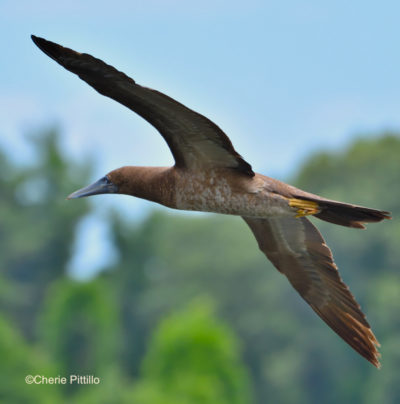
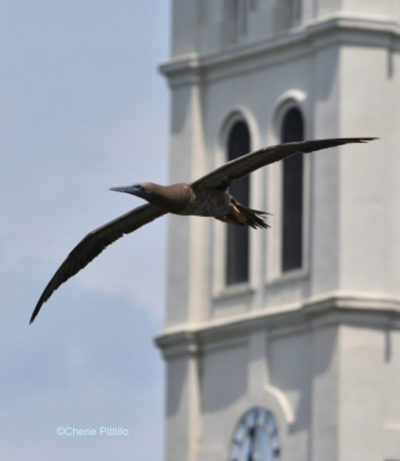
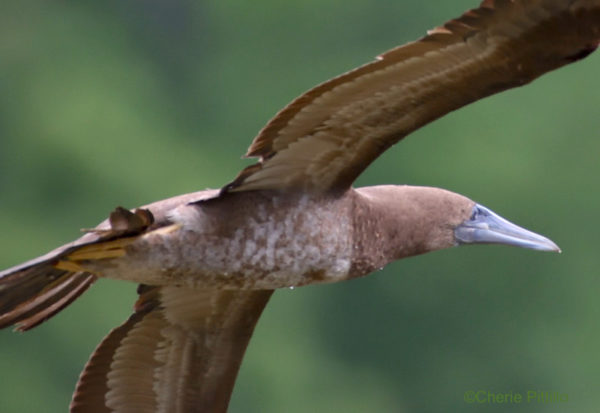
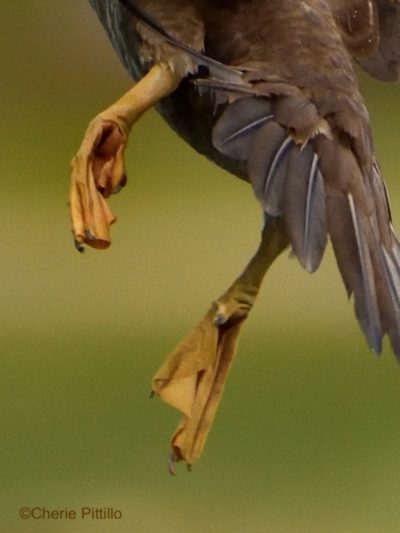

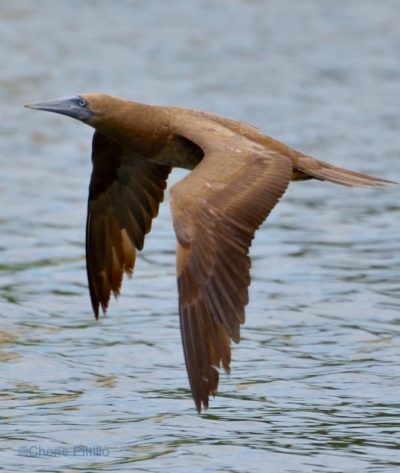

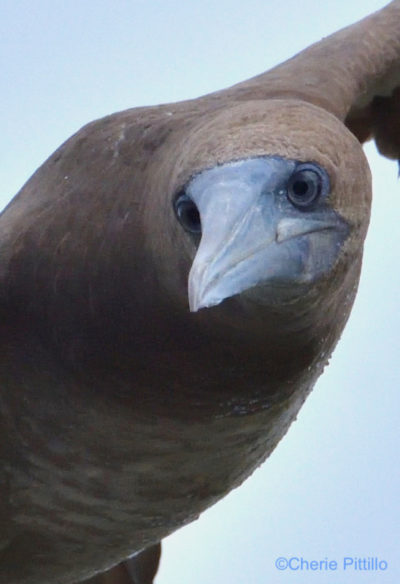
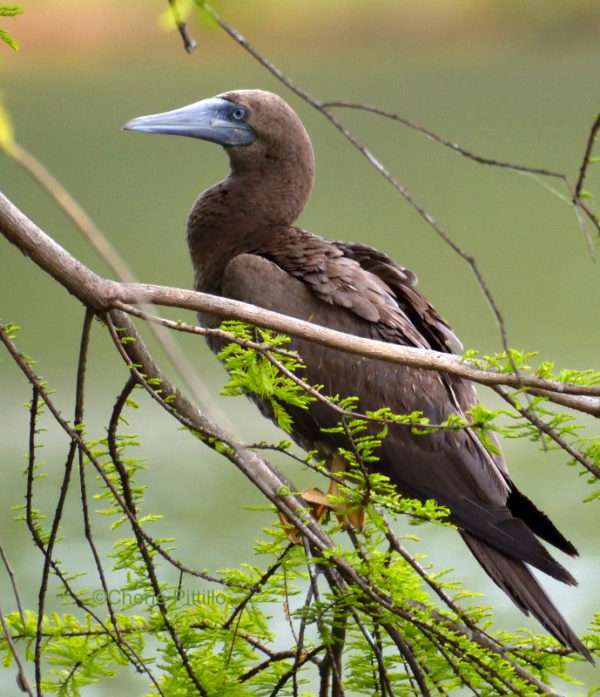
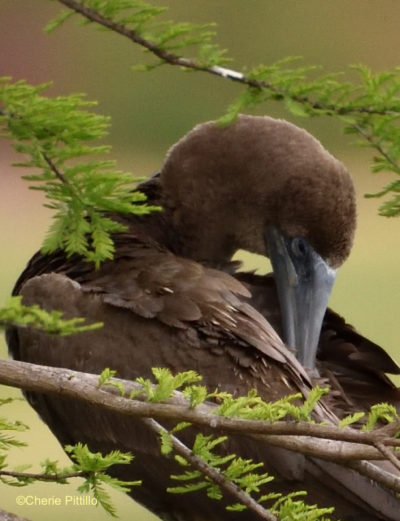

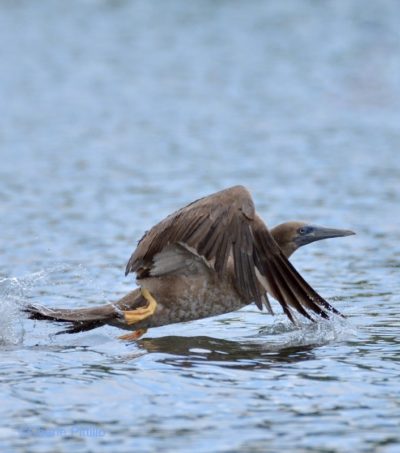


1 comment
Amazing pictures of a uniquely feathered bird. Looks like it is wearing a hoodie. These pictures must have taken hours to capture the bird in so many wonderful shots. Thanks for the information. You can feel your joy in finding this bird in your “backyard.”
Comments are closed.